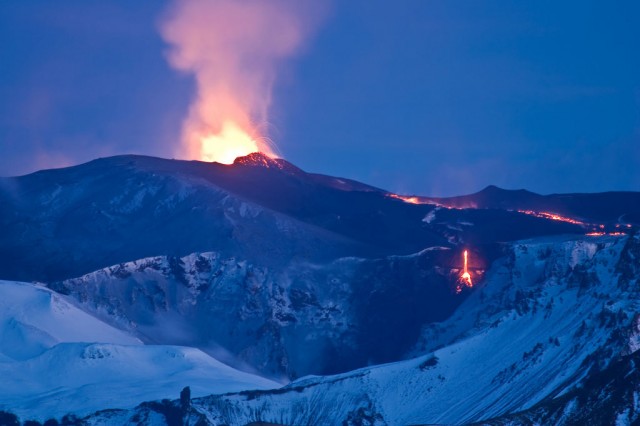Earth's orbital cycles may trigger peaks of volcanic eruptions
Ars Technica » Scientific Method 2012-12-11

Over the past couple million years, a rhythmic pattern of climate changes have been driven by cycles in Earth’s orbit. These cycles affect the sunlight reaching the Earth, altering seasonal patterns and leading to growing or shrinking ice sheets. The changes echo throughout the Earth, from atmospheric and ocean circulation to ecological responses and even erosion and sediment transport. But could the cycles have affected volcanic eruptions?
A new study published in Geology argues that they did. Previously, researchers have noticed correlations over limited time periods and regional scales, but the new work extends this to a broader picture, and appears to show a pretty strong link.
To get long records of volcanic eruptions, the researchers used marine sediment cores from around the Pacific Ring of Fire. Unlike on land, where erosion can wash away ash layers, the records in the seafloor sediment preserve the ash from eruptions that occurred upwind of their location. Errors in the dates assigned to those ashes, which are based on correlating those layers with well-dated ones on land and estimating the rate at which sediment piles up on the seafloor, are difficult to avoid, but the researchers did their best to account for that uncertainty.
Read 8 remaining paragraphs | Comments